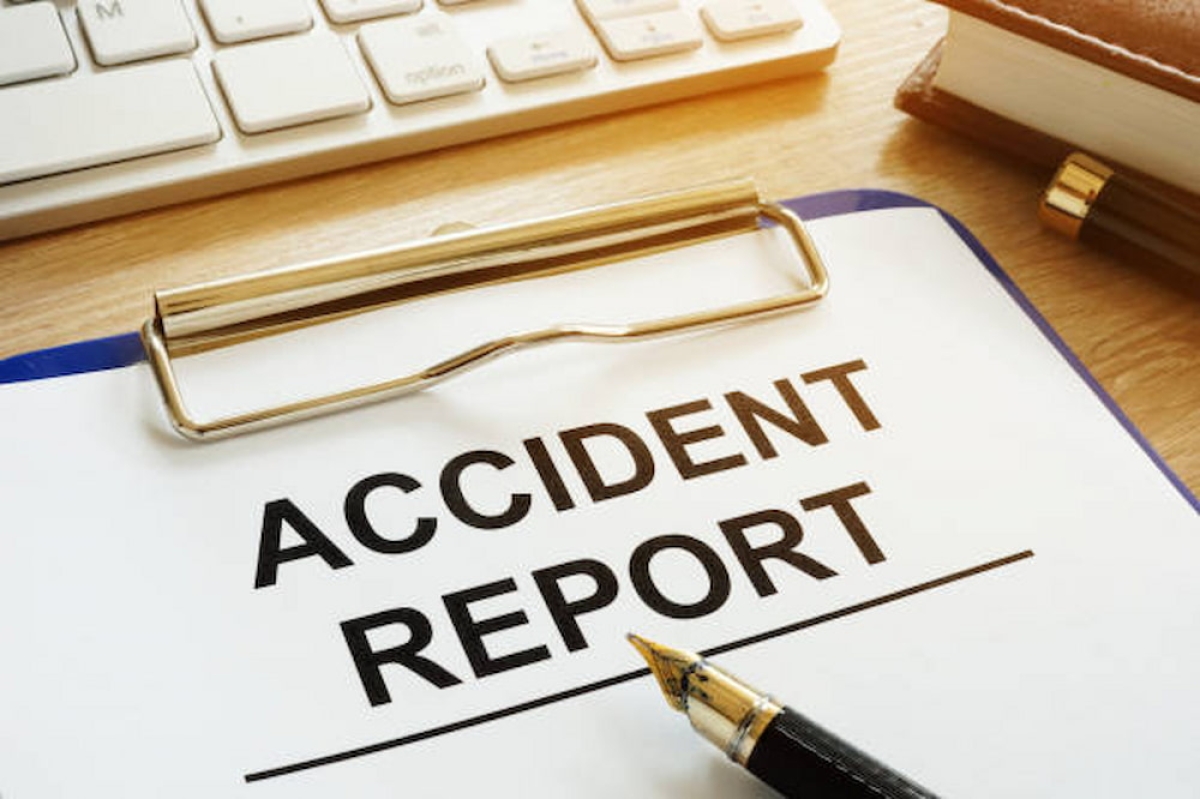20th November 2023
Why is it Important To Report Accidents at Work?
Accidents can happen in any workplace, regardless of its size or industry. From a minor slip and fall to a more serious incident, these accidents can have significant consequences for both employees and employers.

Accidents can happen in any workplace, regardless of its size or industry. From a minor slip and fall to a more serious incident, these accidents can have significant consequences for both employees and employers.
To ensure a safe and secure working environment, it is essential to report accidents at work promptly. In this blog, we'll explore the importance of accident reporting, its benefits, and the steps involved in the process. Read on to find out more.
Promoting a Safe Workplace
The primary objective of incident reporting accidents is to promote a safe working environment. When accidents are reported, it allows employers to identify potential hazards and take corrective measures to prevent similar incidents from occurring in the future.
A proactive approach to safety not only protects employees but also protects your business's reputation.
Early Intervention and Treatment
A work accident may result in injuries or illnesses, some of which might not become apparent immediately. By reporting an accident as soon as it happens, employees can receive prompt medical attention as and when necessary.
Early intervention can prevent minor injuries from escalating into more severe health and safety issues, reducing the time and cost associated with treatment.
Legal Compliance
In the United Kingdom, businesses are legally obligated to report a workplace accident, a personal injury or an incident report form under the Reporting of Injuries, Diseases and Dangerous Occurrences Regulations (RIDDOR).
This form requires employers and employees to record the details of the accident in the accident book. This applies to all types of workplaces, no matter the industry.
Failure to comply with these regulations can result in fines and legal consequences for both employers and employees. By reporting accidents, you can avoid legal complications and ensure you remain in compliance with the law.
Workers' Rights and Compensation
Accident reporting is closely tied to workers' rights. When accidents occur, employees have the right to report them without fear of retaliation.
Reporting an accident is the first step in the process of seeking compensation for any injuries or losses suffered at work. This compensation can help employees recover and cope with the financial burdens associated with workplace accidents.
Preventing Recurrence
Reporting accidents and completing COSHH assessments is important, as it not only helps in addressing the immediate aftermath but also in preventing future occurrences. Employers can use the information gathered from accident reports to identify trends and root causes, making it possible to implement preventive measures.
This proactive approach creates a safer work environment for all employees. This is why risk assessment training is crucial to ensure the safety of employees and employers in the workplace.
Building Trust and Employee Morale
Encouraging employees to report accidents, whether it be slips, trips or falls, demonstrates a commitment to their safety and well-being.
This, in turn, fosters trust between employers and employees, leading to higher employee morale and job satisfaction. When employees feel that their well-being is a priority, they are more likely to be engaged and productive in their roles.
Continual Improvement
Reporting accidents is part of a broader approach to workplace safety, which involves continual improvement.
By analysing accident reports, employers can make informed decisions to enhance safety procedures, training, and equipment. This ongoing process helps to create a culture of safety within the organisation.
Encouraging a Reporting Culture
To ensure that accidents are reported promptly and accurately, businesses must promote a reporting culture.
This involves educating employees about the importance of reporting, assuring them that they will not face reprisals for doing so, and providing a straightforward and accessible reporting process.
Reporting Process
As soon as an accident occurs, you should inform their supervisor, manager, or the designated safety officer. If there are injuries, seek medical attention promptly. Ensure that a record of the injuries and treatment is kept.
Employers may have specific forms or systems in place for reporting accidents. Ensure that all relevant details, such as the date, time, location, and witnesses, are accurately recorded.
For reportable incidents under RIDDOR, notify the relevant authorities as required by law. Moreover, employers should investigate the incident to determine its causes and prevent future occurrences.
Based on the investigation's findings, you must take corrective actions to enhance safety and ensure everyone in the workplace feels their well-being is put first at all times.
In conclusion, reporting accidents at work is vital for the safety and well-being of employees, legal compliance, and the overall success of an organisation.
It promotes a culture of safety, trust, and continuous improvement, ultimately benefiting both employers and employees. Encouraging a proactive approach to accident reporting should be a top priority for every workplace in the UK.
Here at Beaconrisk, we offer a range of accreditation and e-learning services, including workplace health and safety. This course lasts a total of 45 minutes and provides you with a thorough understanding of health and safety legislation.
For more information on the services we offer, don't hesitate to contact us at 0151 647 8658. We look forward to hearing from you.





